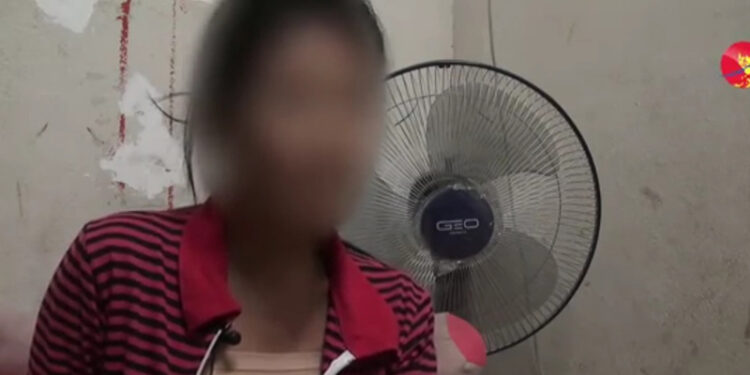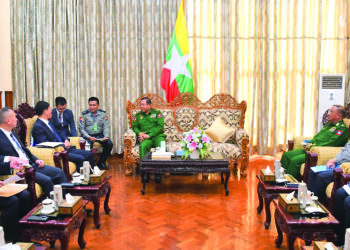NAYPYITAW — New challenges face the human trafficking squad of Myanmar’s police force in the fight against cross-border trafficking of Myanmar women into China, said the police.
“The number of human trafficking cases has not declined over the past years,” said, Police Colonel Thet Naung, “and a new form of trafficking has emerged.”
Chinese men now legally marry Myanmar women before selling them back in China and in some cases even force them to be surrogate mothers, said the police colonel during the event held to mark Anti-Human Trafficking Day in Naypyitaw on Thursday.
According to existing laws in Myanmar, Buddhist women are allowed to tie the knot with foreigners who are also Buddhists.
In most of the trafficking cases they have investigated, said the police, Myanmar women married not because they fell in love with Chinese men, but because the Chinese men gave a large dowry to their parents.
Though the nuptial laws in China prohibit arranged marriage and marriage for dowry, those laws do not prescribe penalties for violation, said the police colonel.
“Chinese men marry them officially and take them [to China] with official passports. As it is legal, it is difficult for us to control,” he said.
“There are other situations.” For example, Myanmar women who are convinced by middlemen that they will get jobs in China cannot bring about arrest the arrest of traffickers by the squad.
“Victims are brought through the border into China. We stop them on the way, but then they say we can’t prohibit a Myanmar citizen holding a citizenship identity card from going freely inside the country,” said the police colonel.
There were 1,609 cases of human trafficking involving 3,850 victims from 2006 through 2017, and 4,556 perpetrators were arrested. Most of the cases involved China.
The number of cases that went unreported is likely to be more than that of reported cases in Myanmar, as is the case with human trafficking across the world.
According to the police, some victims have reported that they have been forced to live with as many as five Chinese men and have given birth at least three times. They also reported being forced to marry men with mental and physical disabilities.
“There are many of such cases,” said police colonel Thet Naung.
Last year, around 74 percent of victims were trafficked to China, four percent to Thailand, 0.29 percent to Malaysia, and 21.28 percent within the country itself, said Vice-President Henry Van Thio at the event on Thursday.
Most of the cases involved forced labor, forced marriage, the sex trade and forced adoption, said the police.
Translated from Burmese by Thet Ko Ko.
















